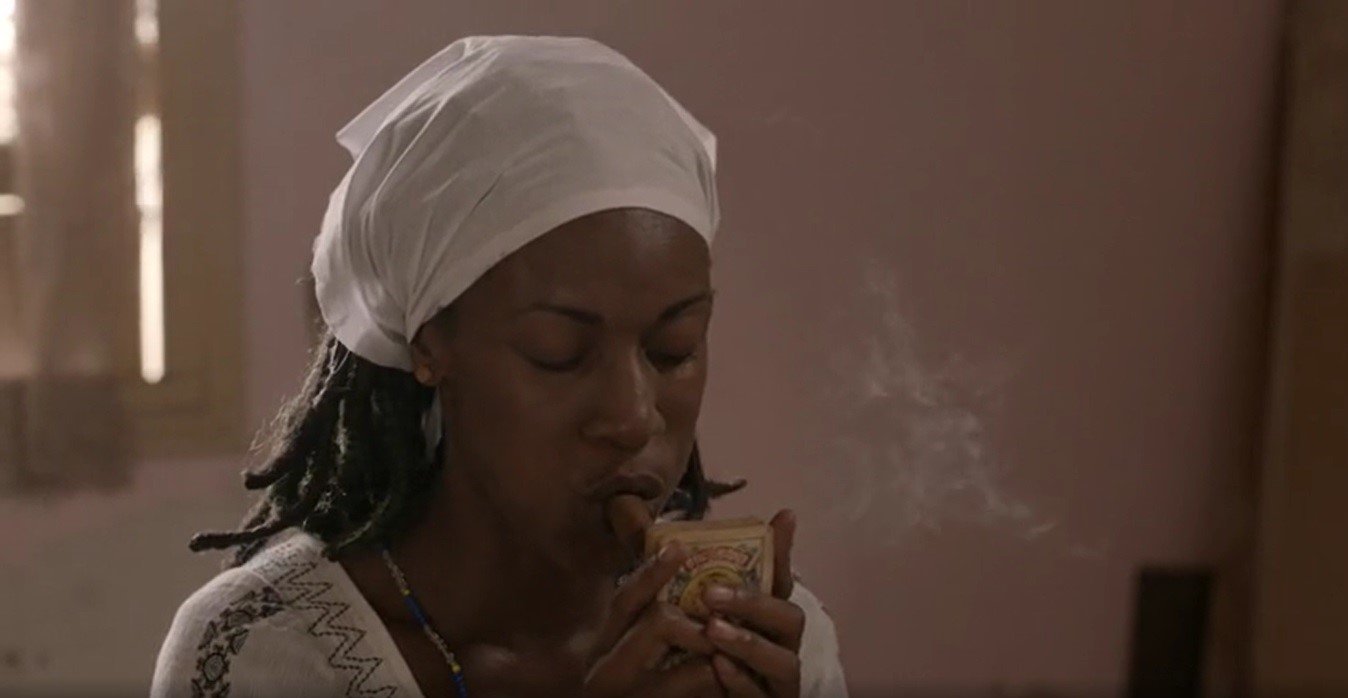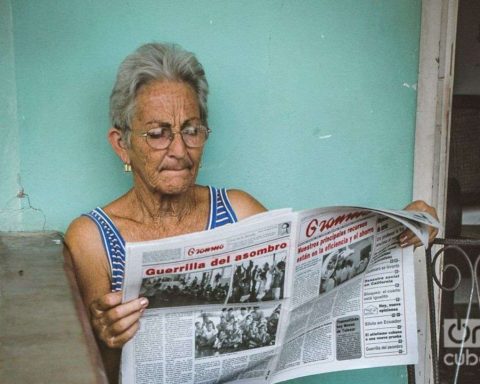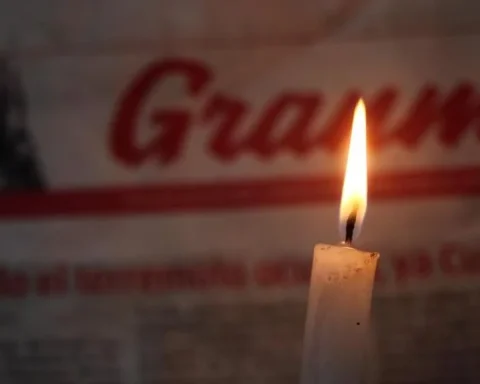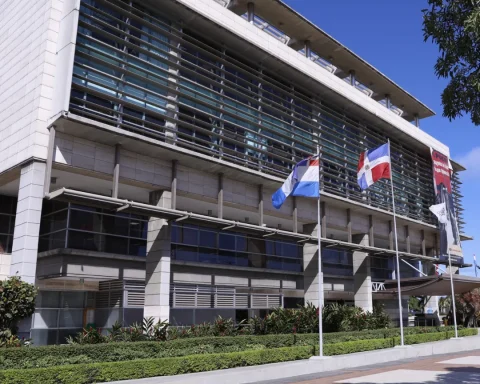Santeria as a balm for the loneliness of Cuban mothers who lose their children, either because they leave the island or because they are burned on it, is the focus of the film “Vicenta B.”, which received a standing ovation this Sunday in the section Latin Horizons of the San Sebastian Festival.
Directed by Cuban Carlos Lechuga, the play stars the magnetic Linnett Hernández Valdés, in the role of a powerful santera who wants to help others and thus neglects her personal life, but who loses her gift when her worries overwhelm her.
“When reality hits you, drinks and cards are not worth it, it is very difficult to keep faith,” Lechuga remarked in the colloquium after the film.
The director, whose grandmother was a card reader according to the journalist Marina Estévez Torreblanca, had to find a very personal story to be able to shoot again in Cuba after being subjected to a period of censorship and surveillance for his previous film, Santa and Andrew (2016), which recounted the friendship between a revolutionary peasant woman and a gay writer whom she has to watch for three consecutive days.
The result was the script for Vicenta B., where there is no trace of ideological discourse. However, its author believes that it is a “very political film, because everything in Cuba is political,” as he pointed out in the colloquium after the screening.
Thus, it makes it clear that young people on the Island are forced to choose between uprooting themselves and leaving their families behind to work abroad, or staying and living in a depressing and penurious situation, and thereby burning out, which has turned the country into an “island of the elderly”, in his words.
When Lechuga was shooting the film, at the worst moment of the pandemic, he accompanied his mother to get vaccinated against COVID-19 and observed how most of those who waited to be vaccinated later were older people with no one by their side.
“The greatest damage that has occurred in Cuba is the damage to the family, they have separated families, the elderly from the young who have no chance on the island. This is a film of single mothers with children who either leave or are burned”, she remarked, after which she asked for freedom for political prisoners in Cuba.
TRIBUTE TO THE BLACK WOMAN AND CUBAN SANTERA
Actress Linnett Hernández Valdés, a Cuban resident in Paris, confessed that it has been the most difficult role she has assumed in her career, in which titles such as Cartagenatogether with Sophie Marceau and Christopher Lambert, or Love and Other Demonsas well as numerous theatrical works.
The actress confessed that she does believe that “supernatural things, spirits that accompany us” and that, as stated in the film, “an object, a stone, a piece of wood, can transmit a lot of things to you, especially peace with yourself”.
“Vicenta B”, by Carlos Lechuga, receives support from the San Sebastian Film Festival
The film tells that, just as the slaves found solace in the gods when they were uprooted from Africa to take them to Cuba or killed themselves in desperation, now many of their descendants cling to faith in a mixture of Christianity, African religions , spiritism and divination to ease their living conditions.
To prepare for her role, both in Paris and in Cuba, the actress went to tarot readers and card readers. “They told me how they threw the cards, they talked, they connected with those spirits. For me, this is above all a tribute to the black woman and Cuban santera”, she concluded to applause.
Marina Estévez Torreblanca/Efe/OnCuba.

















